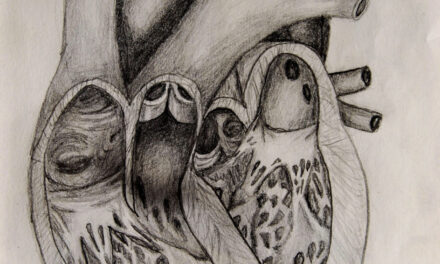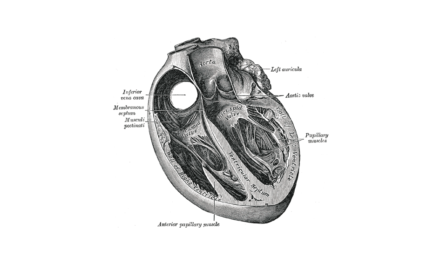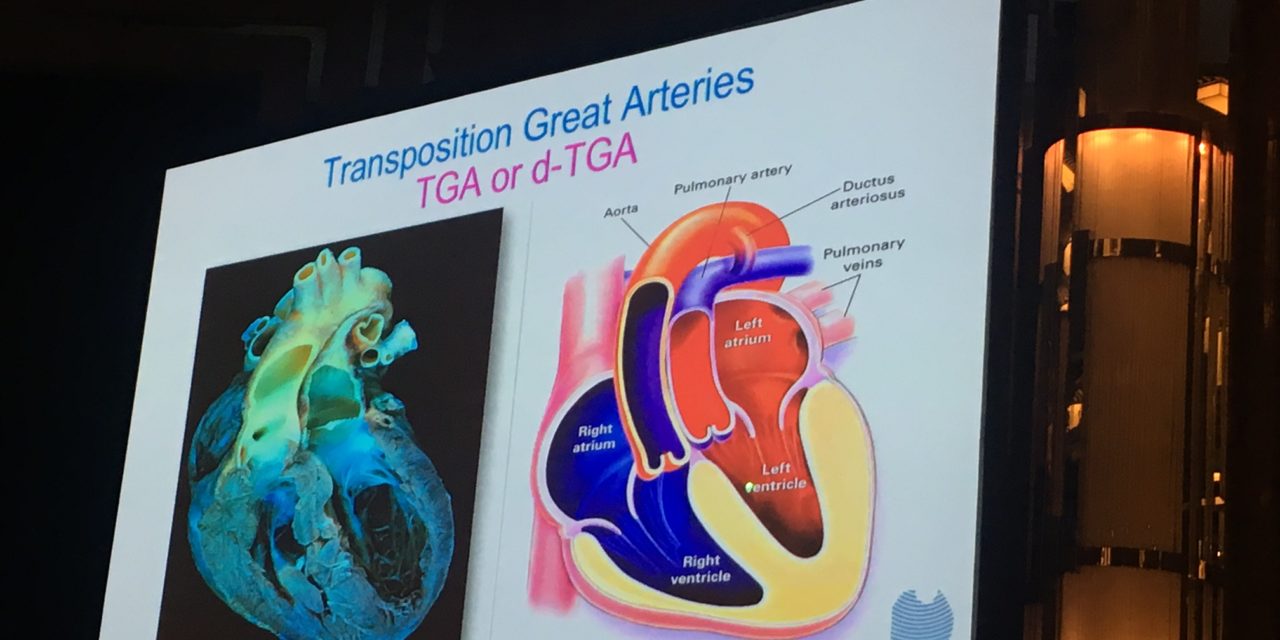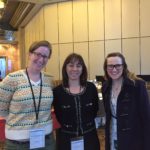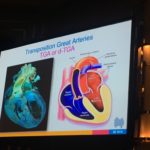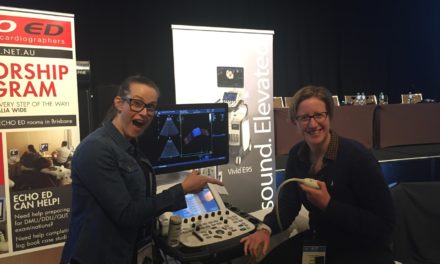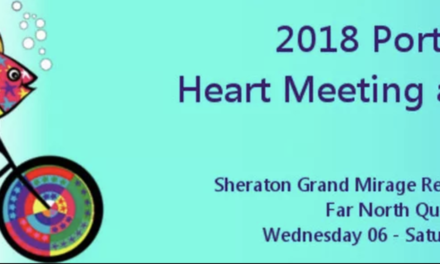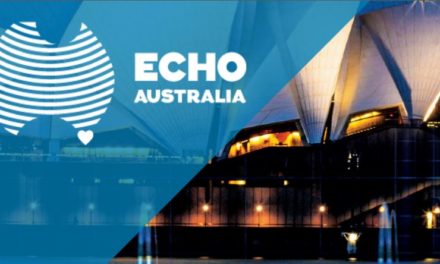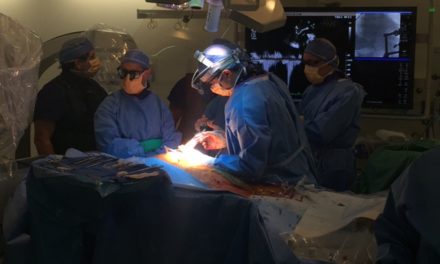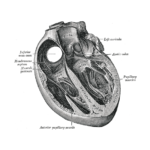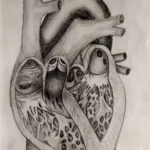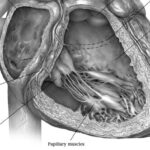Echocardiography is a practice that impacts significantly on all of us that work in the medical field. Most however, may not necessarily realise how far reaching and diverse this amazing skill is. I came to this realisation whilst attending the Echo Australia conference.
Being a newcomer to echocardiography I am becoming aware of how echo makes a difference in my everyday practice and decisions made in the ICU. This conference made me realise that echo on the “front line” is only one step and that there is so much more. Often before a patient even gets into a hospital bed.
The Echo Australia conference brought together a group of engaging speakers who presented on interesting facets of echocardiography. It was truly a pleasure to watch them present.
Day one started with important tips from Bonita Anderson who spoke about the importance of M Mode and pulmonary venous flow in diastology. Darryl Burstow then helped us to decipher the new ASE guidelines on diastology. We met some amazing overseas speakers. Dr Chan spoke about strain and how it is important in clinical use, particularly with the sophistication of current echo machines.
In the next session on valve disease, Helen Thompson spoke about the evolution on 3D echo and its application to valvular disease. The very interesting and wonderful speaker, Greg Scalia discussed the mitral valve from an fascinating perspective.
Most impressive was Heidi Connolly who is an amazing women. Her intelligence and talent abundantly clear in all of the sessions she ran. Including those on gradients and prosthetic valves, cardiomyopathies and pregnancy and CHD. Her sessions were informative and her slides were interactive and enthralling.
In the afternoon I attended the session on intra-operative TOE. It was intriguing to see how echo can guide the surgeon and the interventional cardiologist in obtaining accurate results for patients. The second session was on echo in the ED and ICU. This is very pertinent as it dealt with situations and circumstances I come across every day in practice in the hospital.
The second day started with a session on cardiomyopathies. The presentation about echo, endurance training and heart failure was fascinating and surprising. The session on was HOCM particularly relevant to my practice as it is a condition I see much of in ICU and the tips Helen Connolly spoke about were highly informative.
Up next was ECHO JEOPARDY! It was a highlight for me! It was fun, informative, interactive and hilarious. The slides and echo loops were exceptional.
On both the afternoons on the second and third day, I attended the sessions on live scanning. From basic to advanced to 3D, I found these sessions engaging and I learnt many tricks that I can use to help achieve better results.
The Friday started with a presentation from David McGiffin. His talk on research and the way we view results was highly enlightening and i’m sure he had many people thinking twice!
We then saw some thought-provoking research abstracts and sonographer cases, highlighting the important work that delegates in the echo community are involved in.
We then heard about congenital heart disease and some different and interesting views that can be used to help assess them and their defects.
Overall, I felt so privileged to be chosen for sponsorship to attend the Echo Australia. I am only at the beginning of my “career” in echo, but it was extremely beneficial to my practice. My knowledge has expanded and I feel more strongly about how important echo is in diagnosis, treatment and care of patients. I feel, as an ICU liaison nurse, that echo in my practice is going to grow and become an important tool in helping my patients.
- EchoAU
- EchoAU
- EchoAU


